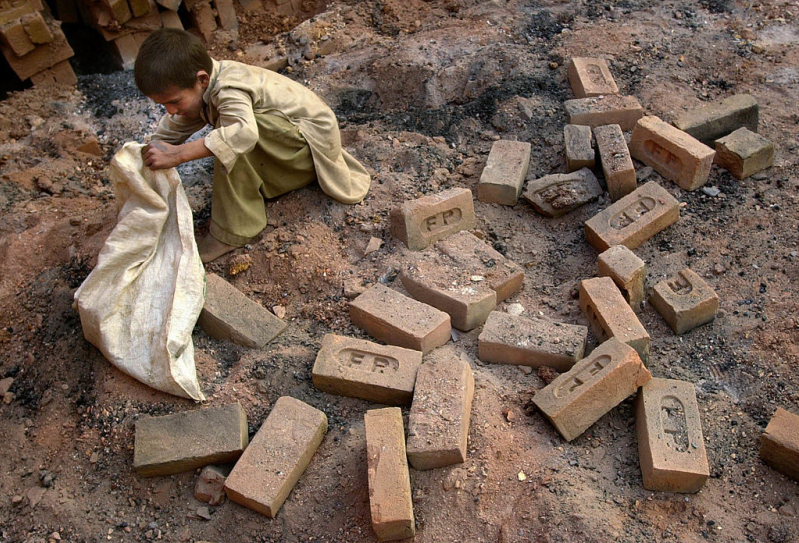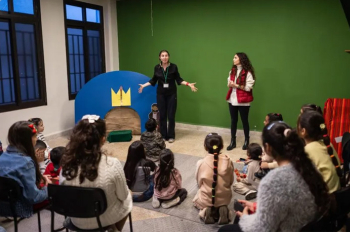
A new report by Pakistan’s National Commission on the Rights of the Child (NCRC) highlights the severe challenges faced by children belonging to religious minority groups, including Christians, and calls for immediate action by the government to curb the high levels of discrimination emanating from systemic bias, social exclusion, and institutional neglect.
The report, titled “Situation Analysis of Children from Minority Religions in Pakistan,” also raises the crucial issues of forced conversion, child marriages, and child labor faced by minority children, particularly those belonging to the marginalized Christian and Hindu communities.
“The worrying trend of systemic discrimination affects every part of the minority population’s daily life, especially their children. Minority children frequently face discrimination from classmates and educators in schools. They also have to deal with curricula that could reinforce negative preconceptions about their religion. Isolation, below-average academic achievement, and, in many cases, school dropout are the expected outcomes of such an educational setting.
“Minority households’ financial situation presents an equally alarming image. Many individuals are caught up in cycles of bonded labor, especially in brick kilns and the agricultural sector, where entire families, including their children, work in cruel conditions,” the report states.
Terming forced religious conversion and forced marriage of Christian and Hindu minor girls to older Muslim men as the most concerning issue, the report notes that there are few legal options available to the victims.
“Such practices persist despite existing legal protections because of institutional biases, public pressure, and the poor role of law enforcement agencies,” it said.
According to the report, between April 2023 and Dec. 2024, the NCRC received 27 complaints related to the oppression of minority children, including cases of abduction, murder, forced conversion, and underage marriages.
The highest number of cases of violence against minority children (40 percent) were reported in Punjab, the most populous province, from Jan. 2022 to Sept. 2024, the report said, citing police data. Among the victims were 547 Christians, 32 Hindus, 2 Ahmadis, 2 Sikhs, and 99 others.
In its review of Pakistan’s educational curriculum, the study noted the minorities’ concern about the absence of religious inclusion in the Single National Curriculum.
“Minority populations often express dissatisfaction with the compulsory study of Islamic religious education due to the absence of other options to examine their own perspectives. This not only infringes upon their religious freedom but also hinders their academic progress, since they are obligated to study a topic that may not align with their principles. Numerous minority students articulate apprehension over their scores on annual evaluations, as their performance in religious studies may adversely impact their total GPA. This intensifies feelings of alienation and reduces their prospects for academic achievement.”
Regarding discrimination faced by minority students in schools, the study said that fellow students—and sometimes even teachers—treat minority students differently when they become aware of their religious and caste identities.
“Students shared that they do not feel comfortable sharing their religious and caste identities because their caste and religion are considered inferior. Due to inferiority complexes, children from oppressed caste communities and minority groups are hesitant to sit in the front seats, ask questions in class, or drink from common glasses,” it said, adding that fellow students from the majority religion mock their religious practices and ask them to convert so they can earn a reward.
In its call to action, the NCRC urged the government to strengthen legal protections, expand social safety nets, create inclusive education policies, and adopt specific measures to counter child and bonded labor as well as forced religious conversions.
Commenting on the report, NCRC Chairperson Ayesha Raza Farooq said the initiative, conducted in collaboration with UNICEF, was aimed at generating evidence, identifying policy gaps, and guiding duty-bearers toward systemic and sustainable solutions.
“While there has been measurable progress—such as improved birth registration and legal reform in certain provinces—millions of children in Pakistan still fall through the cracks due to fragmented efforts, lack of coordination, and limited political will,” she said.
Farooq said that the NCRC was working closely with provincial governments to harmonize child protection laws, raise the age of marriage to 18, ensure inclusive education, and strengthen systems that safeguard all children—especially those from minority communities.
“But we cannot do this alone. Every stakeholder—policymakers, educators, law enforcers, civil society, and faith leaders—needs to move beyond silos and act in unison. Every child, regardless of religion or background, deserves dignity, safety, and a fair chance at life,” she emphasized.
NCRC Minorities Member from Sindh, Pirbhu Lal Satyani, said the study investigates the layered vulnerabilities experienced by children belonging to religious minorities—including barriers to education, incidents of forced conversion, child labor, and discrimination in public services.
“Children from religious minorities are among the most marginalized. They face stigma, stereotyping, and structural exclusion that obstruct their full development. This report is a call to action—for both policy and society—to ensure their inclusion, dignity, and protection,” Satyani said.





